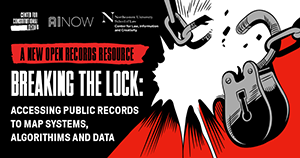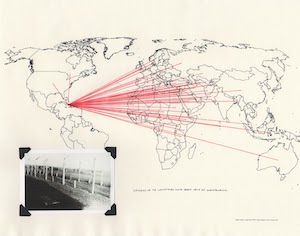 Breaking the Lock: Accessing Public Records to Map Systems, Algorithms, and DataThis week, we proudly unveiled a new open records resource from the Center for Constitutional Rights, AI Now, and Northeastern School of Law CLIC: Breaking the Lock: Accessing Public Records to Map Systems, Algorithms, and Data This update to our guide, "FOIA Basics for Activists," provides annotated templates, examples, and pointers for public records requests focusing on surveillance technology and databases, which have proliferated in use among law enforcement across the country. The ongoing work of our Open Records Project and our partners has shown that these types of surveillance technologies have been especially focused on BIPOC-led activism and organizing in recent years. We hope this resource provides new ideas and guidance for shining a light and pushing back on continued government and privatized surveillance. Check it out on our website.
| ||
 Exhibit: You’re invited to “Remaking the Exceptional: Tea, Torture, and Reparations | Chicago to Guantánamo”We are excited to collaborate with the Depaul Art Museum (DPAM) and the Tea Project on Remaking the Exceptional: Tea, Torture, and Reparations | Chicago to Guantánamo, which opened March 10 and runs through August 7, 2022. The exhibition explores themes of torture and reparations through paintings, drawings, sculptures, and installations produced by torture survivors, artists, and activists, including Center for Constitutional Rights clients Djamel Ameziane and Ghaleb Al-Bihani who were detained at Guantánamo. In addition, our Advocacy Program Manager Aliya Hana Hussain and our client Majid Khan are contributors to the exhibition catalog, which brings together artworks, poetry, testimony by torture survivors, and scholarship at the intersection of aesthetics and politics. To find out more information about public programming and visiting the exhibition, please visit the Depaul Art Museum’s website. |
March 21, 2022

